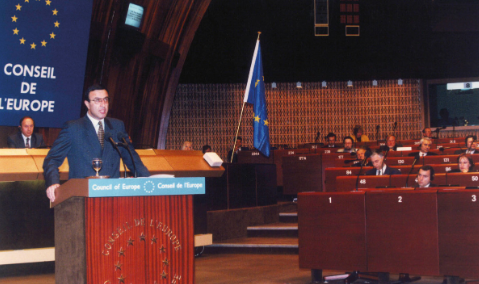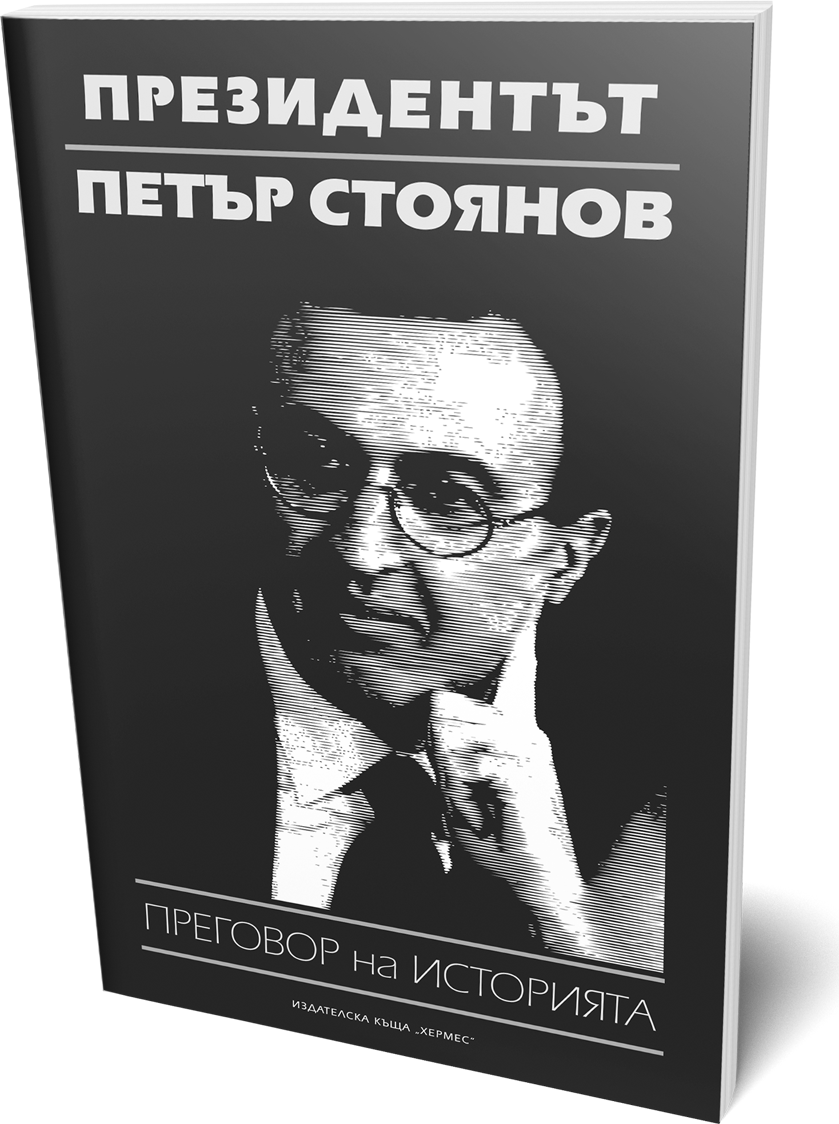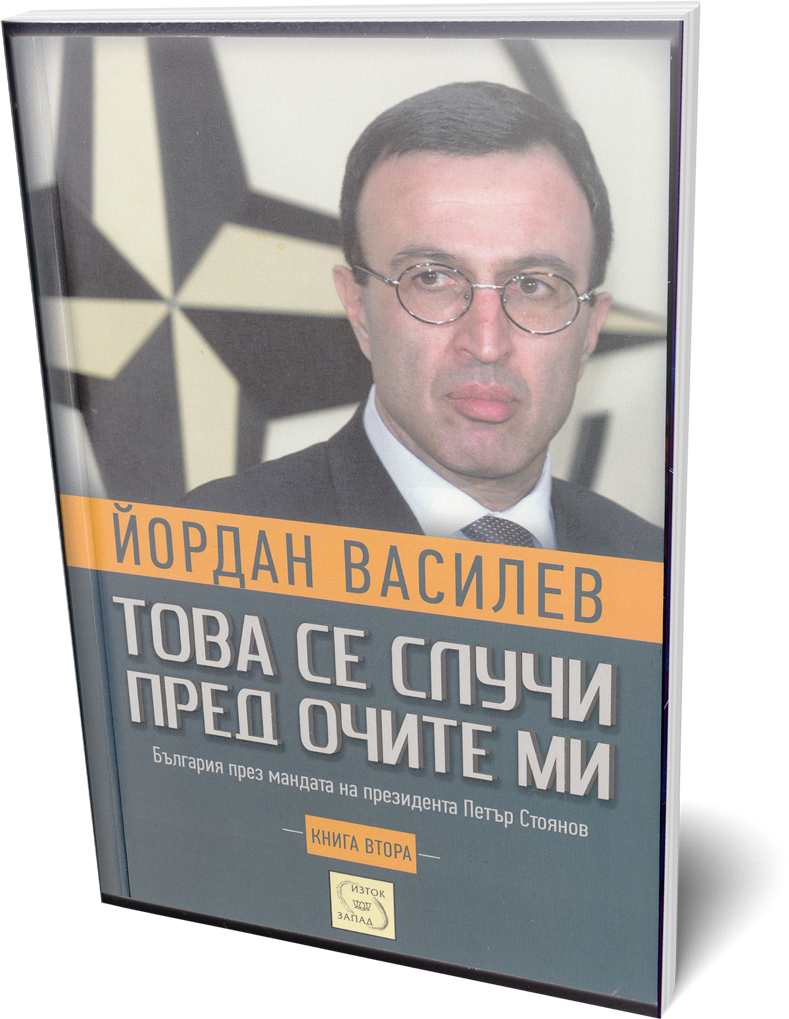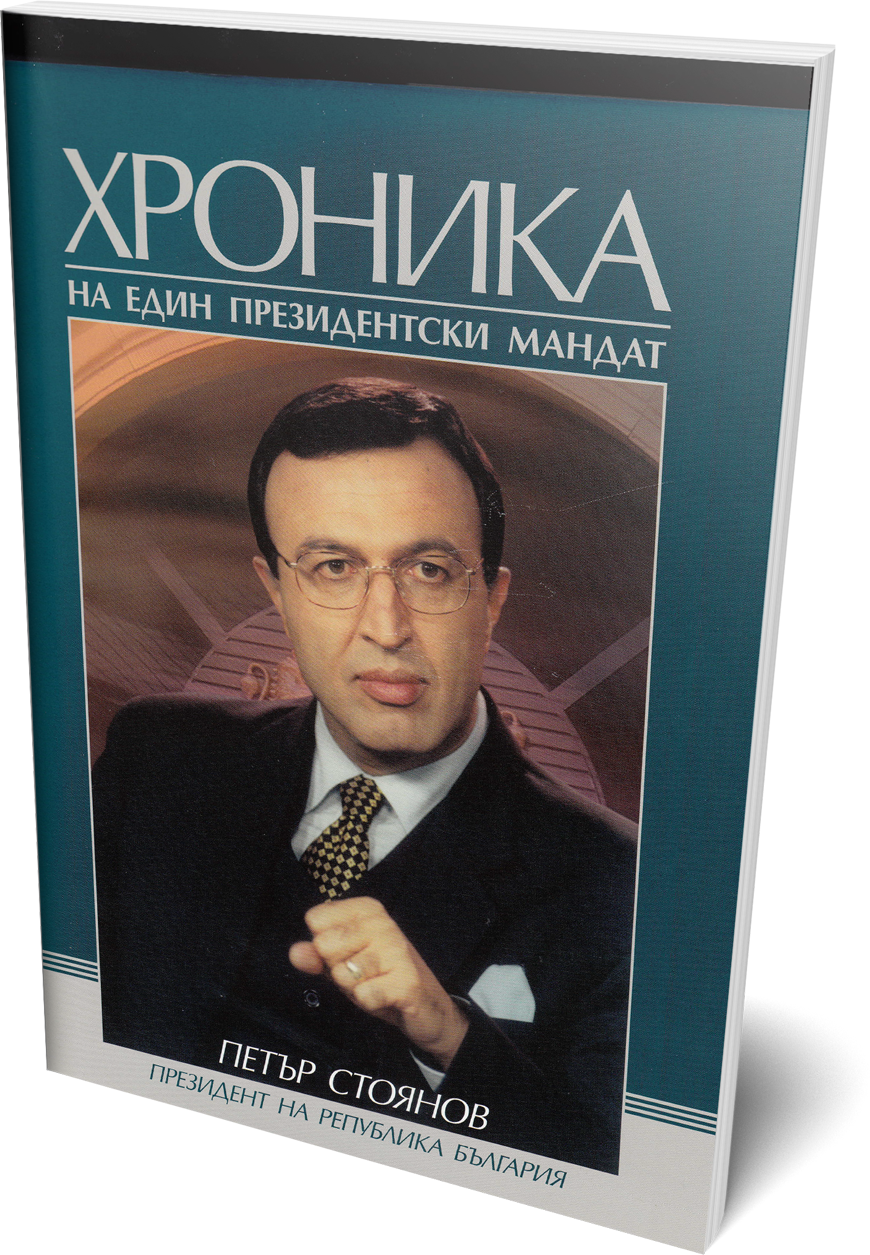Petar Stoyanov, 2016
July 19, 2016
Article for “24 hours” newspaper

Following the British referendum on leaving the European Union, Europe is facing one of the most serious challenges in its post-war years. Therefore Bulgaria cannot shy from this topic. The future status of Bulgarians living in the United Kingdom, the opportunities for our students there, the consequences for our trade and economic relations with Britain – all this is part of a reasonable and mandatory discussion for Bulgarian politicians and the general public. The topic of the future of the European Union is no less important.
The need for such a discussion is obvious and it is also central for today’s European leaders and involves the key issue of EU reform. Yes, the EU needs deep and major reforms and they must be in line with the new situation in Europe and worldwide. After the end of the Cold War, the world changed significantly and so did the EU.
From a union of 15 countries before its further enlargement to the East, which had managed to achieve an inspiring standard of living and a balance between different interests, in less than two decades the EU has become a union of 28 countries. The new members, which comprise half of the EU now, were part of the former Soviet system for 45 years and hence their economic heritage, mentality, habits and propensity for post-communist nostalgia were greatly underestimated by both Eastern Europeans themselves and by European leaders. The difficulties associated with building and operating such an alliance were also underestimated. Let me say at the outset: as a political idea, concept and construction, the European Union has no match in world history. That is why we in Bulgaria should be proud to be part of this project. But the more significant a project is, the more effort and work must be put into building and maintaining it. Perseverance and daily efforts need to be made to overcome the obstacles, and the belief in its ultimate success is necessary but not enough.
At the start of my presidential mandate, I emphasized that figures, comparisons and percentages cannot always explain the success or failure of a nation. Quite often behind the facts there is something very important – the presence or absence in a nation of the mindset to fight for its success. I stand even more behind these words now as among the intelligent and concerned comments following Brexit, I increasingly hear opinions that relish in delight without even trying to disguise it. Perhaps because the EU is, in a sense, the personification of the capitalist West – the same West against which we had “fought“ for 45 years, and it seems that our membership of the European Union is to some a reminder of a lost battle.
For others, Brexit has unlocked our old inferiority complex. We even made up a joke – any empire we joined has failed. For reference, see the Ottoman and Soviet empires, therefore such will be the fate of the European Union too. It is only a dull joke, but it makes one sad, because it suggests that the choice we made is wrong again (after Bulgaria being on the wrong side in the last two world wars).
I am ashamed to read or hear such comments.
Our choice for membership in the European Union is our own, it is the Bulgarian choice. I felt proud to be the president of an awakening nation when before our compatriots and partners I called this choice “civilizational”. I believed then as I do now that this choice is a continuation of the ideals of the fighters from our national revival and of the builders of new Bulgaria.
Need I recall that, unlike the Ottoman Empire of which we became part under the forceful yatagans of Bayezid I, or the Soviet Empire, in which we were pushed by the tanks of the Third Ukrainian Front, we joined the European Union as a result of the free will of the vast majority of the Bulgarian people? I stress on the word ‘vast” and this is evident from all the surveys and opinion polls made. Moreover, during our accession period to the EU, when a sign came from Brussels that neighbouring Romania was ahead of us, we would get restless – we were so eager in our aspiration to join.
No one promised that once we join the European Union, our lives would immediately improve without further efforts. On the contrary – when asked by our citizens when the reforms would end, I responded in all honesty: never. Member or non-member of the European Union, Bulgaria is in a completely new and unfamiliar competitive environment. In order to live better, to produce better products and export them, in contest with the growing competition, we must constantly increase our efforts. This means to be in constant “reforms” to reduce unnecessary costs and the inflated administration, to be innovative and flexible, to fight corruption – all alphabetical truths, but it takes will and patience to put these into action. Will, character and patience are required not only from the institutions, but also from each and every citizen. And if we fail to demonstrate them adequately, the European Union is not to be blamed.
I reiterate and will also stand by this: Bulgaria’s membership of the European Union is one of our greatest historic successes. It took away just one thing: our most important historical excuse – that we have been forever victims of the Great Powers.
Yes, history after our liberation from the Ottoman Empire was not favourable to us. San Stefano Bulgaria was torn apart by the Berlin Congress; we lost almost everything we had gained after the Second Balkan War and the rest was taken away from us after the First and Second World Wars. Europe was divided and we were on the losing side. But today, the winners and losers of the last wars are all together in the European Union and Bulgaria does not need to choose which side to join (a painful choice, by the way). Today, thank God, we are not faced with such a choice, but we have no one to blame.
Of course, today’s structure and activity of the EU must be subjected to serious analysis and criticism and our country must be part of this debate, but with the clear understanding that Bulgaria needs the EU more than the EU needs Bulgaria.
Therefore it is quite disturbing to witness how some of our compatriots rejoice that Britain will leave the EU and that other member states are also contemplating such referendums. These people forget that even outside of the EU, the United Kingdom (or Austria or the Netherlands) will continue to be an attractive economy with a high standard of living and organization of its society, with developed democratic institutions, efficient justice systems and low levels of corruption. Outside the EU, Bulgaria would not only lose everything it has achieved so far, but it would also become easy prey to criminal oligarchic groups and unhealthy foreign interests.
Yes, today the life of many people in our country is extremely hard, but it is high time we realized that the EU is not to blame for this. Even if we imagine the absurd idea that all EU Member States, in a fit of collective madness, decide to declare the end of the union, this end will be nothing like the end of the Ottoman Empire or the end of the Soviet Empire. Or as the end of our neighbour Yugoslavia. Because the general civilizational model of government and self-government of Western societies has long been accepted by the vast majority of their citizens. Even outside the EU’s institutional framework, each of these countries would continue to exist, respecting the democratic principles of governance and self-government, protection of human rights and freedoms, the principles of a free market economy and high competitiveness (meaning an orderly life and good income and pensions) everything the vast majority of the Bulgarian people dream of.
In fact, Bulgarian citizens supported our membership in the EU so strongly not only because of the institutional accession to the Union, but because of the overall idea of a dignified and orderly way of life that the Western EU member states project. Needless to say, these countries owe much of their development to the Renaissance, the Enlightenment, and the Industrial Revolution – something that History has deprived us of. But it was the European Union that gave us the incredible opportunity to make up for lost time. Yes, the lives of many Bulgarians are not easy at all – poverty, crime and corruption continue to grip Bulgarian citizens, but we can imagine what it would be like outside the European Union. Now, even despite our current fatigue from the monitoring reports, we have in place the requirements for compliance with the rules.
And, by the way, those who try to insinuate how good it would be were the European Union to disintegrate, they have themselves for years now resided in London, Paris or Vienna, with their bank accounts, houses and families and see Bulgaria as a colony from which they could siphon easy money.
The interests of the vast majority of Bulgarian citizens, on the other hand, are quite the opposite and they must continue to fight for them.








